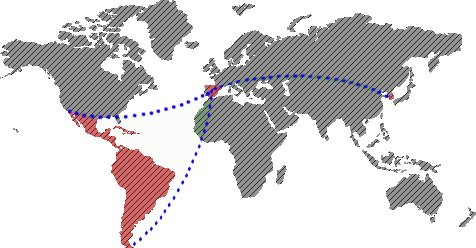Gov't lowers 2020 growth forecast to 0.1%
Author: Lee Kyung-min
Date: June, 1st 2020
Source: The Korea Times
https://www.koreatimes.co.kr/www/biz/2020/06/367_290494.html
The government said Monday that it will invest 76 trillion won ($61.9 billion) by 2025 to strengthen digitization, eco-friendly growth and social safety nets, in a sweeping move to reinvigorate the economy hit by the COVID-19 pandemic.
The Ministry of Economy and Finance announced a series of economic directives for the latter half of 2020, aimed mostly at bolstering investment, consumption and exports, coupled with ways to protect low wage earners who are most vulnerable to economic meltdowns.
Under the measures dubbed "The Korean New Deal," about 6.4 trillion won will be spent by 2022 to create 222,000 jobs to set up online platforms in 15 sectors including education and public administration. The workers will manually process around 140,000 publicly managed files for digital storage.
"The measures include details on how to quickly overcome the COVID-19 crisis, stimulate consumption for a strong economic recovery, prepare for the post-pandemic era and push for The Korean New Deal," Deputy Prime Minister and Finance Minister Hong Nam-ki said during a press briefing at the Seoul Government Complex in Gwanghwamun, Monday.
Fifteen ministries and municipal government bodies will upgrade their current intranet to a 5G technology standard system. About 15 percent of administrative affairs will be conducted using cloud-based servers. Examples include a storage and stockpile management system for manufacturers, and data sharing among logistics service providers, exporters and importers.
The government said 5G convergence between key industries and public administration will be accelerated encompassing healthcare, public safety, defense, manufacturing, energy, criminal justice, national security and tax administration. It will increase the number of graduate school-level workers specializing in smart technology while offering more training opportunities for workers in their chosen field.
Around 800 billion won will be spent by 2022 to create 15,000 jobs in the telecommunications industry to set up high-speed internet connection equipment in 1,300 remote rural regions. Some 41,000 state-run facilities including community health centers will have new wireless internet connections. Over 3,000 community centers will be run to help in the digital education of the elderly.
Over 28,000 jobs will be created to help foster digital education including replacing old devices with new ones and upgrading servers.
The digitization of social overhead capital will need 4.8 trillion won ― 65,000 new jobs will be created for the digital oversight of traffic safety, water resources management and natural disaster prevention. A comprehensive online platform operated by utilizing the internet of things (IoT) will enhance disaster, crime and biohazard prevention at industrial complexes. The government will set up four major logistics centers shared by small- and medium-sized enterprises (SMEs) nationwide and have their data shared on a single online platform.
About 5.8 trillion won will be spent by 2022 to create 89,000 jobs to upgrade old state-run facilities including daycare centers, community healthcare centers, medical facilities and government-rented apartments.
Old, fossil fuel-based utility systems will be replaced with high-efficiency green energy ones. Students at state-run elementary and secondary schools will be provided with digital devices including tablet PCs for education.
The government will come up with 100 information technology systems to help resolve environmental issues including tackling fine particles, low-carbon vehicle manufacturing, air quality management and environment awareness education.
Some 1.7 trillion won will be spent to finance 100 SMEs with green, sustainable business models in stages; while 5.4 trillion won will be spent to set up infrastructure for the utilization of solar, wind and hydrogen energy.
Nine hundred billion won will be spent on monthly premiums for low income earners to bring them into the state-run unemployment insurance system.
The government plans to set Korea's pandemic containment model as a global standard, laying the ground work for local manufacturers to gain a competitive edge globally.
To encourage competition, the administration will lower barrier to make it easier for developers of medical devices and treatment technologies to enter a market long dominated by established players.
The government said the economy is expected to grow 0.1 percent in 2020, revised down by 2.3 percentage points from a 2.4 percent projection made in late 2019. This is a rosier outlook than the 0.2 percent contraction forecast by Bank of Korea, May 28.
"We have not completely ruled out an economic contraction in 2020 but the 0.1 percent growth outlook reflects the government's firm resolve to reinvigorate the economy backed by the third extra budget," Hong said.
The government plans to submit the bill, the largest stimulus package to date, Thursday.
In a bid to jumpstart the economy in the short term, the government plans to frontload 75 percent of a third extra budget worth at least 30 trillion won within three months of its passage.






